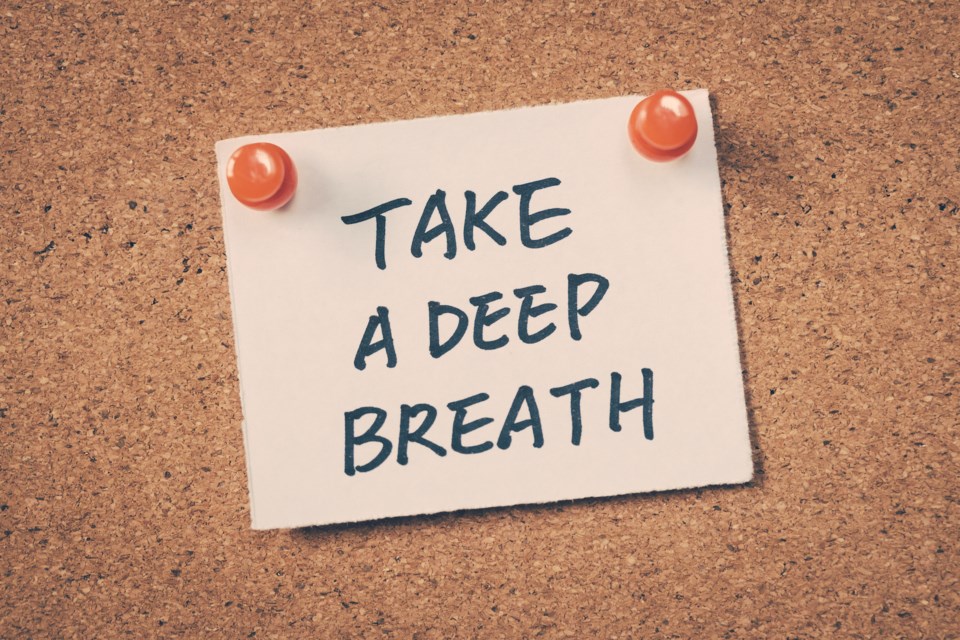As Saultites isolate themselves and forego social activity to help control the spread of COVID-19, what's the potential mental health fall-out? And what’s the best way to cope?
“A lot of people are having anxiety right now – and with good reason. But there are ways to reduce your anxiety during this time – especially by practicing mindfulness," said Anna Gartshore, MSW, RSW and local psychotherapist.
Gartshore notes that during the current pandemic, everyone’s thoughts are “future forward” as people contend with thousands of “what ifs”.
Instead, Gartshore says we’ve got to tap into the parasympathetic system (that’s the nervous system that slows the heart rate and relaxes the body), so we can be in our “wise mind – where we are responsive, and not just reactive.”
Beyond just Yoga and deep breathing practices – both of which help to access the parasympathetic system - the act of paying attention to one’s body, thoughts, and environment has been integrated into numerous types of therapies – from CBT (cognitive behaviour therapy) to DBT (dialectical behaviour therapy).
One resource Gartshore recommends to anyone suffering with anxiety is anxietycanada.com, which provides evidence-based tools to manage the condition. The organization has also created an easy-to-use app, MindShift CBT, which serves as an educational resource, guides people through mindfulness practices and teaches relaxation techniques.
“Mindfulness is just a way of grounding yourself so that you can lead from an anchored position – something that’s particularly important when dealing with anxious children,” says Gartshore, who treats a number of parents, youth and children in her private practice. “While we do want to reinforce the tenets of social distancing, we also need to get people outside. They still need sun on their face and to breathe fresh air.”
For youth experiencing anxiety during the pandemic, Gartshore says they need to get outside too.
“We have so much technology now, youth can really get locked into screen mode,” she says. “But even they will really benefit from a bit of outdoor time.”
That said, she recommends youth organize parties over Zoom or Skype: “This time of their lives – it’s critical to maintain social connections.”
When it comes to parenting young children, Gartshore recommends listening extensively before interrupting or correcting children’s emotions.
“It’s natural for them to be afraid,” she says. “But parents have to allow kids the chance to express their feelings and then have them validated.”
Phrases such as “You’re safe with me” and “It’s my job to take care of you and we will get through this together” can help children feel a sense of control and calm given the radical upheaval their lives have undergone.
With the lack of playdates and crazy amounts of screen time that are available, Gartshore again
recommends that children get plenty of opportunities to play outside in their own backyards (while still practicing social distancing).
Kids Help Phone also offers kids 24/7 professional help (via texting or direct phone calls) and has special support services during the COVID-19 breakout when they have been particularly busy.
Kidshelpphone.ca also offers extensive resources on panic, anxiety, and depression which may have been triggered during the crisis.
And finally – check on the seniors in your life – your neighbours, aunts, uncles and family members who may not be tech-savvy enough to communicate with you via Zoom or Skype. Pick up the old fashioned phone and give them a call – it’s what we should be doing anyways – with or without a crisis like this. And offer to buy them some groceries, walk their dog, or bring them a roll of toilet paper.
We may be social isolating – but if the Coronavirus has revealed anything – it’s that we are more dependent on each other than ever before.



